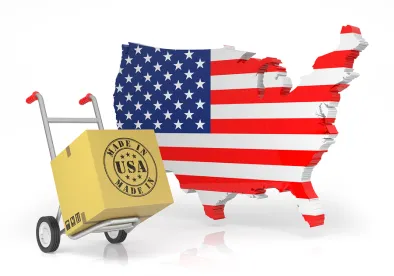In an executive order signed January 31, 2019, President Donald Trump extended "Buy American" requirements to all infrastructure projects that receive federal financial assistance. These "domestic preferences" cover not only iron and steel, but also "manufactured products" containing aluminum, plastics, concrete, glass, and lumber.
This order may significantly affect the rights and opportunities of both foreign and domestic manufacturers and developers of infrastructure projects related to surface transportation, aviation, ports, water resources, electricity and energy production, generation, and storage, electricity and energy transmission or distribution systems, broadband internet, pipelines, stormwater and sewer infrastructure, drinking water infrastructure, and cybersecurity. Building on Executive Order 13788 (Buy American and Hire American Order), the order directs executive branch agencies to apply the explicit statutory authority in "Buy American Laws" to "maximize . . . the use of goods, products, and materials produced in the United States." Through this new order, the President has extended that system of explicit domestic preferences in two important ways.
First, the order extends the "Buy American" mandate to projects beyond the scope of existing "Buy American Laws" that establish a preference for U.S.-manufactured goods in the case of federal purchases and grants. In this regard, the order may be vulnerable to challenges that the President exceeded his statutory authority by imposing additional requirements beyond those identified by Congress.
The President's order requires that executive agencies "encourage" recipients of federal assistance to use domestically produced materials "in every contract, subcontract, purchase order, or sub‑award that is chargeable against such Federal financial assistance award." Agency leaders also are required to determine whether the programs they administer "would support . . . the imposition of a requirement" to use domestic iron, aluminum steel, cement, and manufactured products, holding out the prospect that "encouragement" to use domestic materials may give way to a "requirement" to do so.
Second, the order requires that these "Buy-American Principles" be applied to reach all infrastructure projects receiving any federal financial assistance. While the Buy American and Hire American Order applied to federal purchases and grants, the universe of projects receiving "federal financial assistance" is far larger, including projects receiving federal support in the form of loans, loan guarantees, interest subsidies, insurance, cooperative agreements, non-cash contributions or donations of property, direct appropriations, and food commodities.




 />i
/>i

